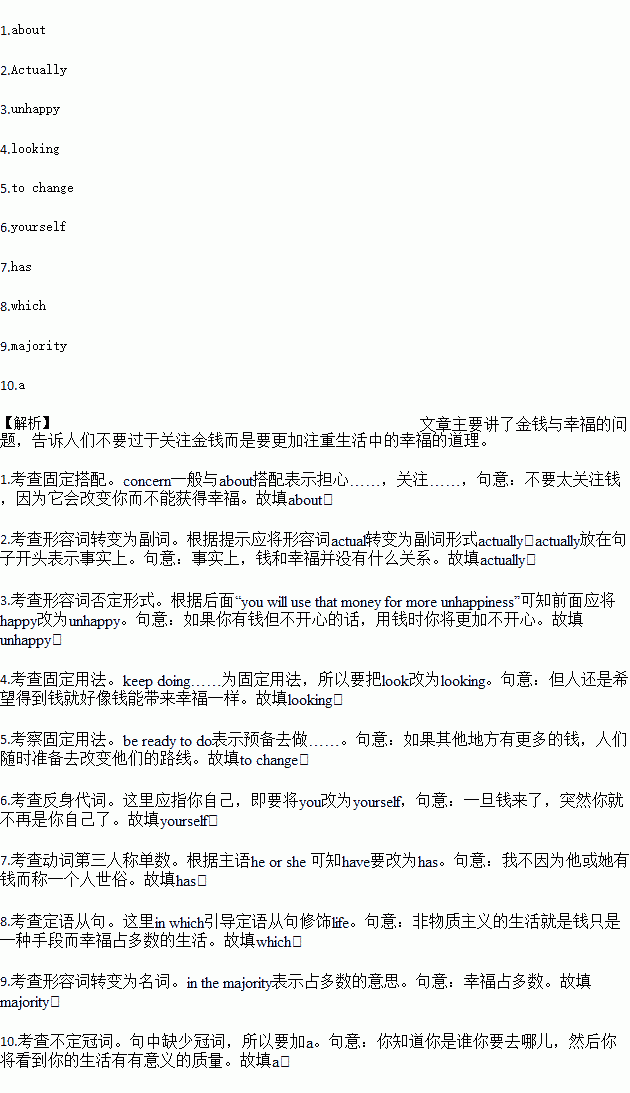题目内容
Don’t be too concerned 1.money, because it will change you from achieving happiness. And the ironic(讽刺的)thing is that people think they will be happy when they have money. 2.(actual), money has little to do with happiness. If you have money but you are3.(happy), you will use that money for more unhappiness. But people keep 4.(look)for money as if money is going to bring happiness. People are ready, at any moment, 5.(change)their ways, if more money is available somewhere else. Once the money is there, then suddenly you are no longer 6. (you); you are going to change. This is the way of the worldly man. Remember, I don’t call a person worldly because he or she 7. (have)money. I call them worldly if they change their motivations for money. This applies to people with no money as well. The non-materialistic (非物质主义的)life is one in 8.money is just a means: Happiness is in the9.(major). You know who you are and where you are going, and then you will see your life has10.meaningful quality.

